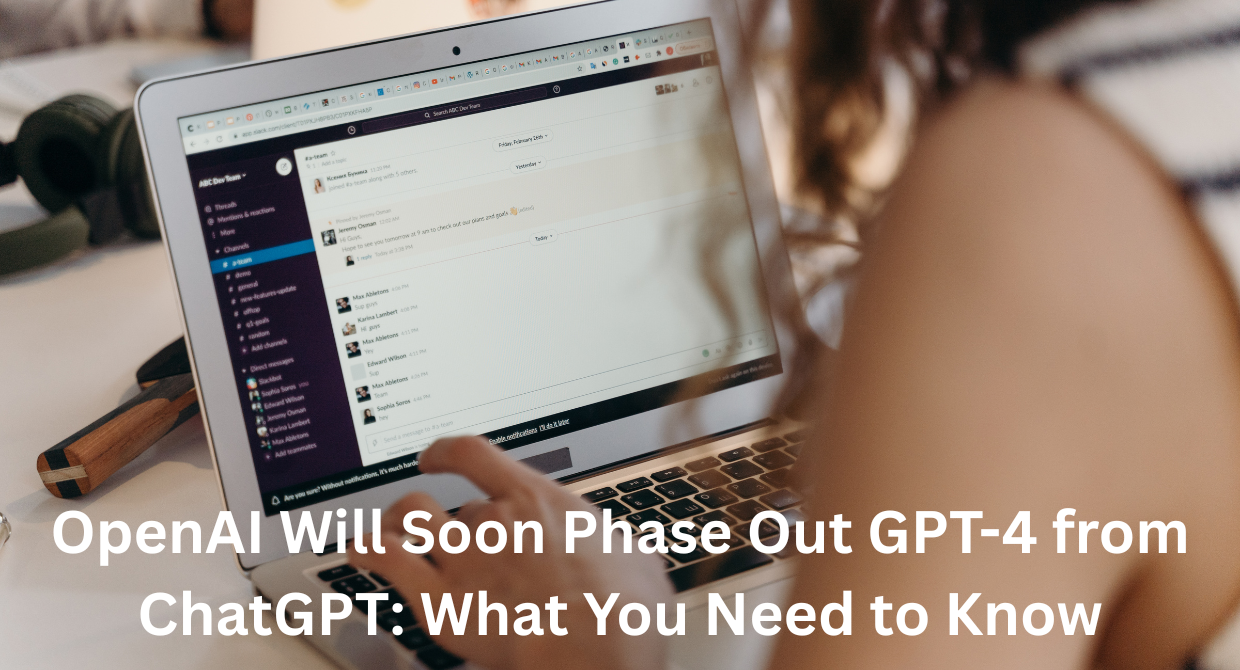OpenAI Will Soon Phase Out GPT-4 from ChatGPT: What You Need to Know OpenAI has announced it will phase out GPT-4 from ChatGPT, making GPT-4-turbo the default model for premium users. This change underscores OpenAI’s shift toward faster, cheaper, and more efficient large language models. If you’re a developer, AI researcher, or regular ChatGPT Plus user, here’s what this means for you.
Why OpenAI Is Retiring GPT-4
The answer is simple: GPT-4-turbo outperforms GPT-4 in almost every aspect.
Launched in late 2023, GPT-4-turbo is cheaper, faster, and capable of handling significantly more context tokens — up to 128k, compared to the 8k or 32k limits in GPT-4. OpenAI confirmed that since its release, GPT-4-turbo has powered ChatGPT Plus, even though the label simply reads “GPT-4.”
You can read the official announcement from OpenAI here:
🔗 OpenAI Model Documentation
GPT-4 vs GPT-4-turbo: What’s the Difference?
While OpenAI hasn’t disclosed the full architectural differences (the GPT-4-turbo model may be trained differently or use alternate techniques), we do know:
- Speed: Turbo is optimized for lower latency.
- Price: GPT-4-turbo is significantly more cost-effective on the API.
- Memory: With a 128k context window, it can process entire books or long chat histories.
For comparison and pricing details, check out:
🔗 OpenAI Pricing Page
When Is GPT-4 Being Phased Out?
OpenAI hasn’t shared an exact date, but the deprecation is expected in 2024. API users should begin transitioning to GPT-4-turbo now to avoid disruptions.
Once GPT-4 is fully phased out, API calls requesting it may fail or be auto-redirected to turbo. Developers using the API should refer to the OpenAI API upgrade guide for migration steps.
Read Also-Microsoft’s Free Windows Upgrade: How 500M Users Can Claim It
How This Affects ChatGPT Users
If you’re using ChatGPT Plus, you’re already using GPT-4-turbo under the hood. The label might say “GPT-4,” but the turbo engine has been running the show since November 2023.
Free-tier users will continue using GPT-3.5 unless OpenAI decides to upgrade the default model — which hasn’t been announced as of now.
Conclusion
The retirement of GPT-4 reflects OpenAI’s commitment to innovation and efficiency. For developers, this is an opportunity to build faster, more scalable AI solutions. For ChatGPT users, it’s a reminder that what’s under the hood is evolving — often for the better.
Now is the time to embrace GPT-4-turbo as the new norm and future-proof your applications.
